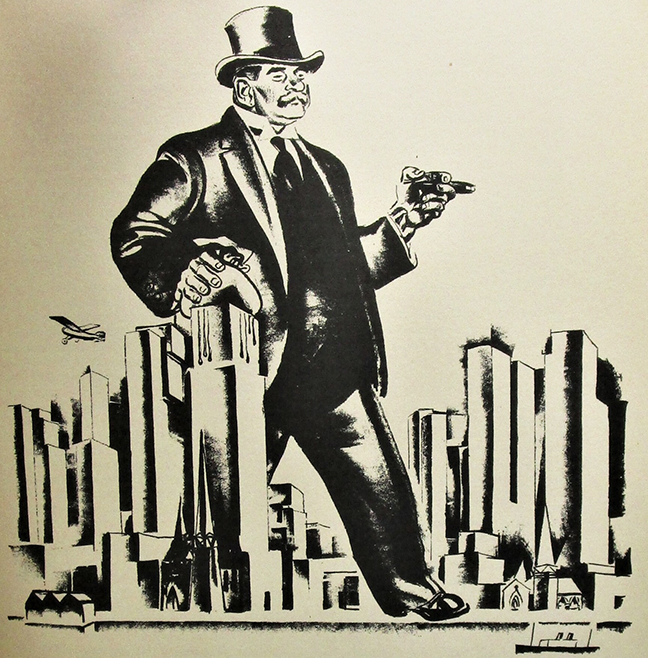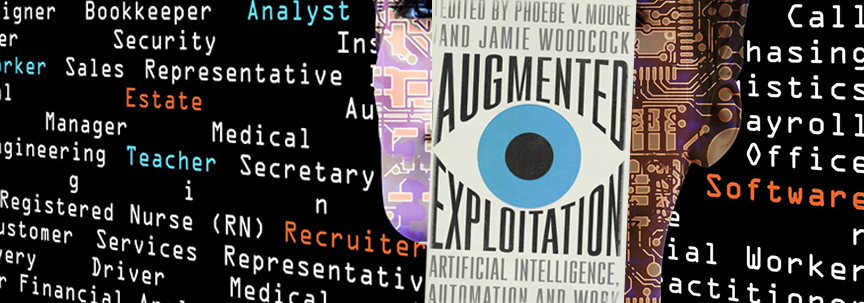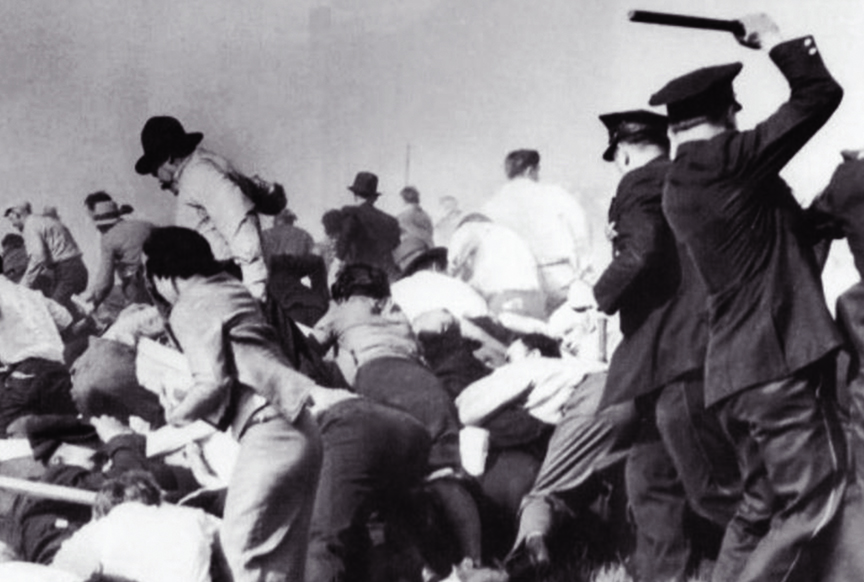Science and Method
Grundrisse
Online: Zoom link will be provided to registered participantsIn the Grundrisse Marx arguably bridges his early writings on philosophy and Hegel, and the writing and revisions of Capital that dominated much of the rest of his life. We will undertake a close, word by word reading of the text with a view to understanding the concepts that evolve within it. This first term will begin with the chapter on money.
Capital, V1, Part 2: The Transformation of Money Into Capital
Online: Zoom link will be provided to registered participantsWe will do a close reading of the chapters in Part Two of Volume I of Capital on “The Transformation of Money Into Capital”. In these chapters Marx introduces the fundamental concepts of capital,labor power, surplus value and the valorization process.
Grundrisse
Online: Zoom link will be provided to registered participantsIn the Grundrisse Marx arguably bridges his early writings on philosophy and Hegel, and the writing and revisions of Capital that dominated much of the rest of his life. We will undertake a close, word by word reading of the text with a view to understanding the concepts that evolve within it. This first term will begin with the chapter on money.
Capital, V1, Part 2: The Transformation of Money Into Capital
Online: Zoom link will be provided to registered participantsWe will do a close reading of the chapters in Part Two of Volume I of Capital on “The Transformation of Money Into Capital”. In these chapters Marx introduces the fundamental concepts of capital,labor power, surplus value and the valorization process.
Capital, V1, Part 2: The Transformation of Money Into Capital
Online: Zoom link will be provided to registered participantsWe will do a close reading of the chapters in Part Two of Volume I of Capital on “The Transformation of Money Into Capital”. In these chapters Marx introduces the fundamental concepts of capital,labor power, surplus value and the valorization process.
Capital, V1, Part 2: The Transformation of Money Into Capital
Online: Zoom link will be provided to registered participantsWe will do a close reading of the chapters in Part Two of Volume I of Capital on “The Transformation of Money Into Capital”. In these chapters Marx introduces the fundamental concepts of capital,labor power, surplus value and the valorization process.
Capital, V1, Part 2: The Transformation of Money Into Capital
Online: Zoom link will be provided to registered participantsWe will do a close reading of the chapters in Part Two of Volume I of Capital on “The Transformation of Money Into Capital”. In these chapters Marx introduces the fundamental concepts of capital,labor power, surplus value and the valorization process.
Augmented Exploitation: Artificial Intelligence, Automation, Work and Changes in the Labor Process
Online: Zoom link will be provided to registered participantsIn the Introduction to Augmented Exploitation, co-editors Phoebe Moore and Jamie Woodcock point up two main problems with how automation and artificial intelligence are being discussed as the end of the first quarter of the 21st century draws near. Number one is the claim that Al is changing the labor process in new and unprecedented ways. But capitalists have always introduced machines in order to increase the amount of what each worker can produce in a given period of time. This is where the second problem comes in—either a certain process will be automated, or it will not—a binary that focuses on machines and not on the workers who operate them. Rather than the prospects of automation and interpretive learning replacing workers, we need rather to see that these are augmentations of the labor process. Also discussed will be two of the many vital essays from this year's Socialist Register—Beyond Digital Capitalism: New Ways of Living.
Political Economy of Labor Repression in the United States
Online: Zoom link will be provided to registered participantsAndrew Kolin presents a detailed explanation of the essential elements that characterize capital’s relations to the working class and how capital relies on various forms of repressing reform and revolutionary movements by workers. The repression is directly linked to the class struggle between capital and labor. The starting point examines labor repression after the American Revolution. Andrew’s book then follows the role of the state along with the explosive growth of American capitalism to analyze the long history of capital and labor conflict with details of the US state being aligned with the interests of capital throughout American history.
Studies in the Works of Antonio Gramsci with Piruz Alemi
Online: Zoom link will be provided to registered participantsThis 10-week session has four sessions remaining which feature a close reading of Gramsci’s Prison Notebooks. We will look to connect cultures and their human rights struggles. We will also explore those who influenced Gramsci, particularly Marx, but also Machiavelli and Croce. This seminar is accessible to people at all levels of familiarity with Gramsci’s work, including those just beginning their studies of Gramsci. Join at any time.
Value, Fictitious Capital and Finance. The Timelessness of Karl Marx’s Capital with John Milios
Online: Zoom link will be provided to registered participantsStarting from his value-form analysis in Part One of Volume 1 of Capital, Marx develops the concept of “fictitious capital” in Volume 3, which depicts the role of interest-bearing capital and the financial sphere. Marx’s analysis allows for an understanding of contemporary capitalism, financialization and crisis: financialization cannot be isolated from “real” economy; it should be conceived as a “technology” of exercising capitalist power and hegemony over the working classes and the society as a whole. Marx’s analysis provides the terms to rethink the contemporary neoliberal form of capitalism and its crisis as expressions of the contradictions inherent in the organization of capitalist power.
Studies in the Works of Antonio Gramsci with Piruz Alemi
Online: Zoom link will be provided to registered participantsThis 10-week session has four sessions remaining which feature a close reading of Gramsci’s Prison Notebooks. We will look to connect cultures and their human rights struggles. We will also explore those who influenced Gramsci, particularly Marx, but also Machiavelli and Croce. This seminar is accessible to people at all levels of familiarity with Gramsci’s work, including those just beginning their studies of Gramsci. Join at any time.
Studies in the Works of Antonio Gramsci with Piruz Alemi
Online: Zoom link will be provided to registered participantsThis 10-week session has four sessions remaining which feature a close reading of Gramsci’s Prison Notebooks. We will look to connect cultures and their human rights struggles. We will also explore those who influenced Gramsci, particularly Marx, but also Machiavelli and Croce. This seminar is accessible to people at all levels of familiarity with Gramsci’s work, including those just beginning their studies of Gramsci. Join at any time.
Grundrisse: The Chapter on Money (The first two notebooks)
Online: Zoom link will be provided to registered participants“Forces of production and social relations - two different sides of the development of the social individual - appear to capital as mere means, and are merely means for it to produce on its limited foundation. In fact, however, they are the material conditions to blow this foundation sky-high...” —Karl Marx, The Grundrisse
Everyone a Legislator with author Michael Denning
Online: Zoom link will be provided to registered participants“Perhaps Gramsci’s political science is … a “necessary expression of his time, the short twentieth century, an era now ended, the ae of three words divided between Fordist capitalism, bureaucratic communism and the post-colonial settlements of decolonization. If this is true, is there a future for Gramsci’s legacy?” —Michael Denning







